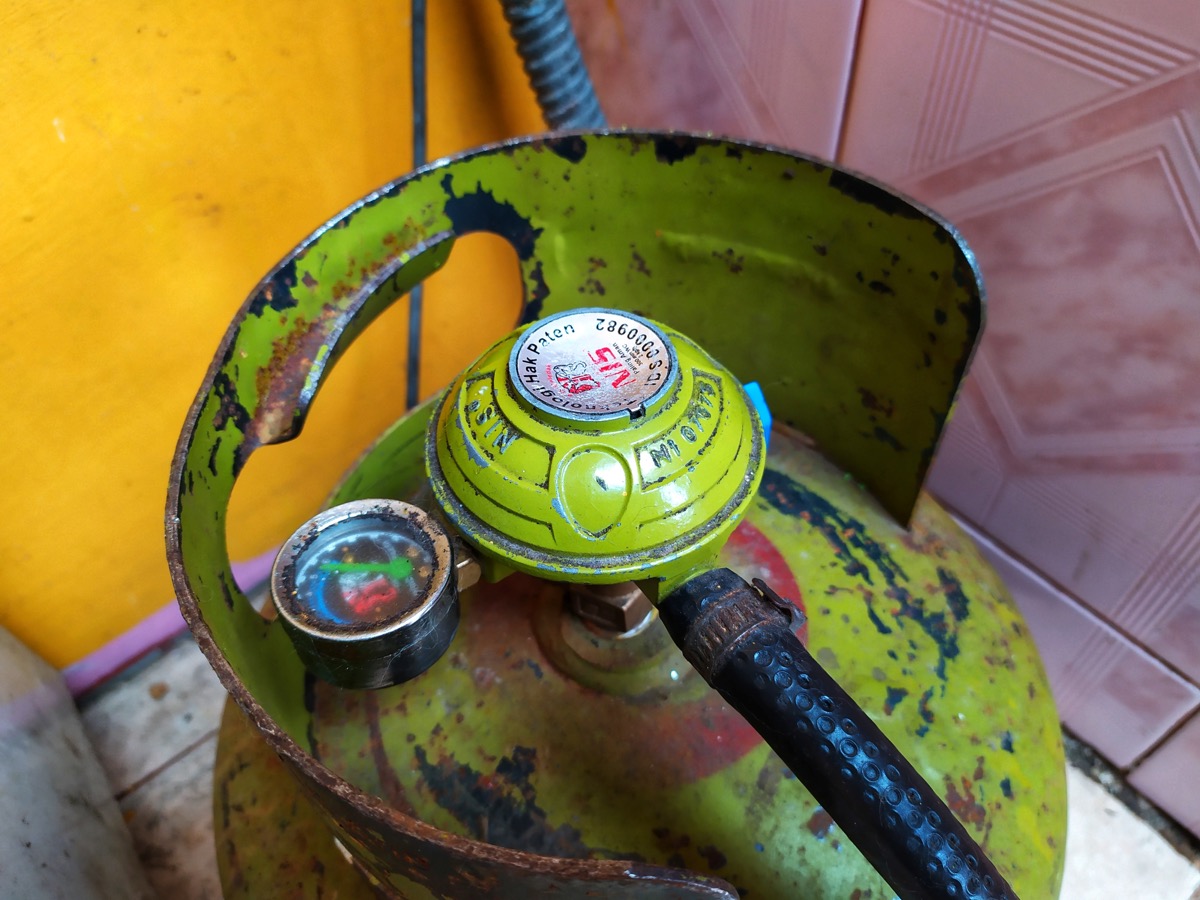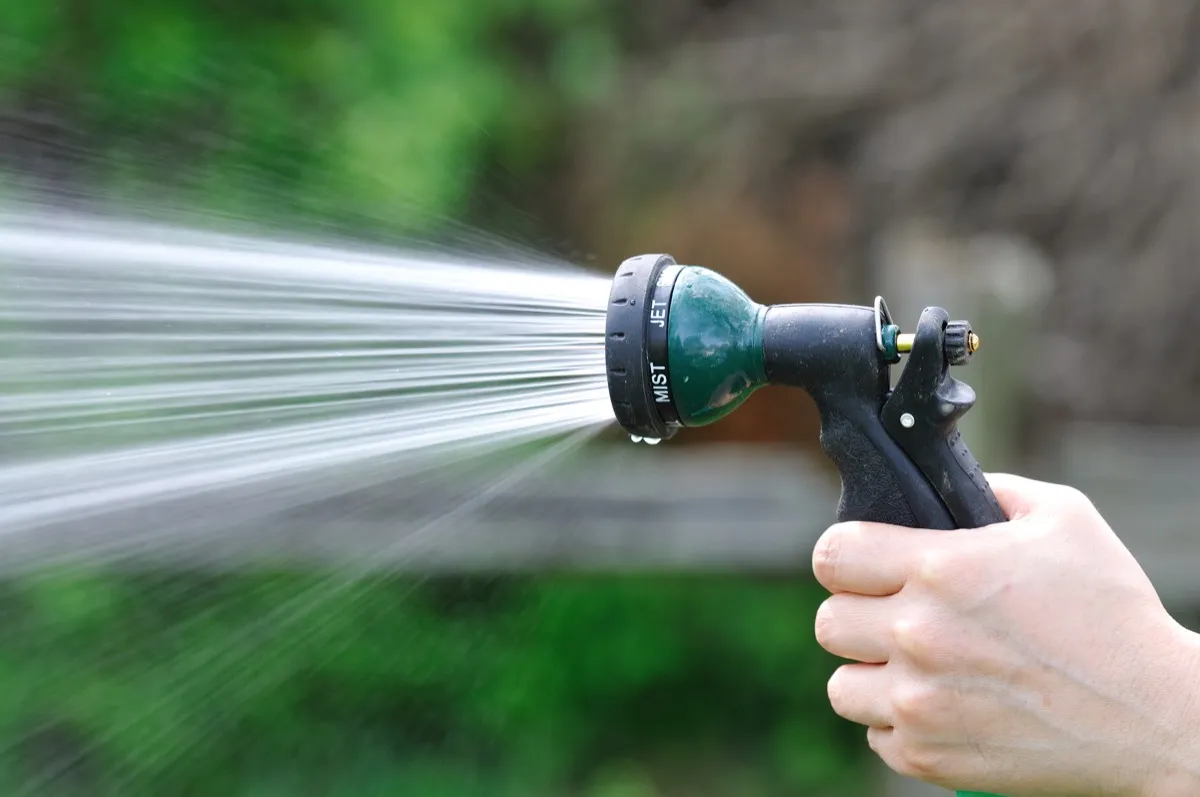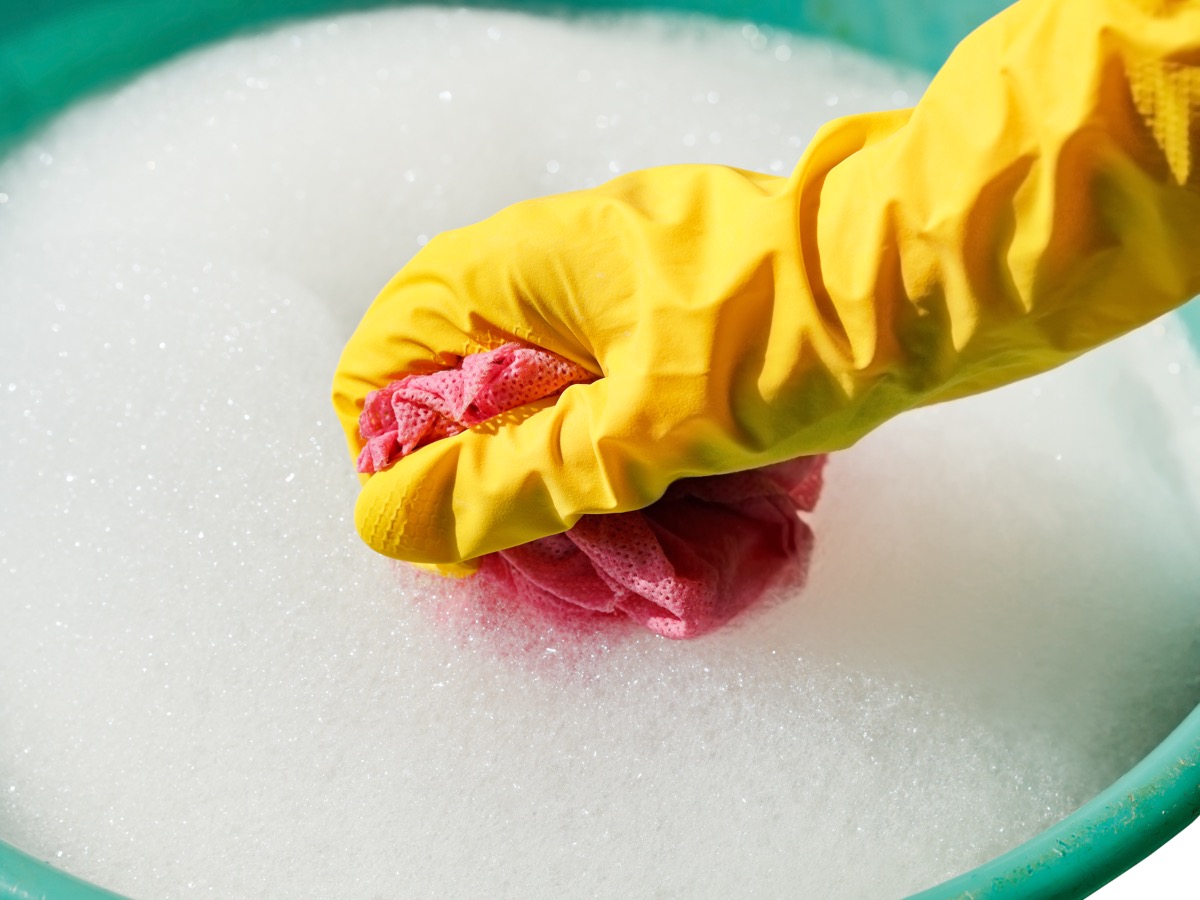If You See This on Your Grill, Never Use It, Experts Say

Grilling might just be the quintessential summer activity, and with July 4th weekend fast approaching, countless people are eager to break out their grills for the first time this season and cook up some al fresco meals for their friends and families. However, before you so much as go grocery shopping for your upcoming barbecue, there’s a safety hazard grilling experts want you to know. Read on to discover which common sign means you should never use your grill.
RELATED: If You See This at a Barbecue, Don’t Eat It, USDA Says in New Warning.
If your grill’s liquid propane cylinder is rusty, don’t use it.

Propane tanks attached to your grill can present serious hazards, including fire or explosion risks, if they’re not used properly. However, many grillers don’t realize that a rusty liquid propane (LP) cylinder could be putting you in harm’s way.
According to the Hearth, Patio & Barbecue Association (HPBA), if your LP cylinder has excessive rust or other forms of visible damage, it could be a safety risk and should be inspected by a propane supplier prior to use. Energy supplier SmartTouch Energy explains that when rust builds up inside a propane tank, it can make the propane within it more difficult to smell, meaning the tank is more likely to leak and empty without you realizing it. An empty propane tank may cause the pilot light on your grill to extinguish, which puts you at risk for an explosion or fire.
For more summer safety news sent straight to your inbox, sign up for our daily newsletter.
Painting your propane tank may reduce the risk of rust.

In addition to performing biannual maintenance, including checking your propane tank’s valves and hoses for leaks and signs of damage, the HPBA recommends painting your propane tank to make it less likely to rust.
However, all paints aren’t created equal when it comes to the safety of your tank. According to the National Fire Protection Association (NFPA), propane tanks must be painted heat-reflective colors to ensure so they don’t get too hot, which increases their risk of rupturing.
If your propane tank is stored in hot weather, cool it off.

While propane tanks should always be stored outdoors to reduce the risk of a fire in your home, even tanks stored outside can pose a serious risk if they’re exposed to the elements for too long.
If your propane tank is subjected to extreme heat for a sufficient period of time, pressure can build up within the tank, which may cause propane to leak out, explains Johnson Propane. To help reduce the risk of your tank overheating, the propane supplier recommends hosing off your tank when it’s particularly hot outside to reduce pressure inside the tank.
There’s an easy test to determine whether or not your tank is leaking.

If you have reason to suspect that your propane tank may be leaking, there’s a simple test that can help confirm or disprove your suspicions. Propane supplier AmeriGas recommends turning off your propane tank, applying a layer of thick, soapy water or leak detector solution to the connection points on your tank, and slowly opening the tank’s valve again. If you see bubbles emerge anywhere you’ve applied the soap or leak detector solution, you have evidence of a leak, and your tank should be repaired by a professional.
RELATED: Never Drink This During a Heat Wave, Experts Warn.